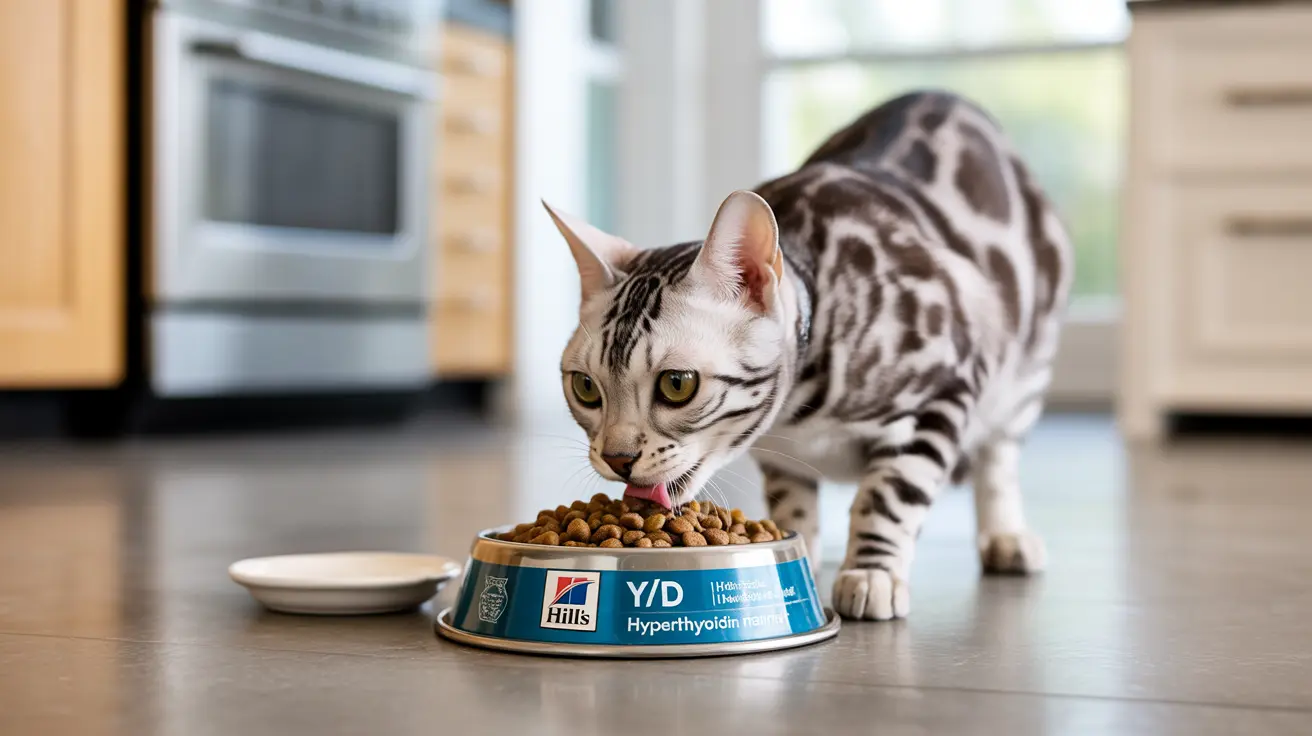Managing hyperthyroidism in cats requires careful attention to diet, and choosing the right cat food plays a crucial role in controlling this common endocrine disorder. For cat owners facing this challenge, understanding how specialized diets can help manage thyroid hormone levels is essential for their pet's well-being.
In this comprehensive guide, we'll explore the most effective dietary options for cats with hyperthyroidism, including prescription foods, nutritional requirements, and practical feeding strategies that can help manage this condition effectively.
Understanding Hyperthyroidism and Dietary Management
Hyperthyroidism occurs when a cat's thyroid glands produce excessive hormones, leading to increased metabolism, weight loss, and various other symptoms. This condition primarily affects older cats, with most diagnoses occurring in felines over 10 years of age.
Dietary management, particularly through iodine restriction, has emerged as a valuable treatment option alongside traditional therapies like medication and surgery. The key is controlling iodine intake, as this mineral is essential for thyroid hormone production.
Prescription Diets for Hyperthyroid Cats
The most widely recognized prescription diet for feline hyperthyroidism is Hill's Prescription Diet y/d, specifically formulated with controlled iodine levels. This diet has been clinically proven to help normalize thyroid hormone levels within several weeks of consistent use.
- Strictly controlled iodine levels (≤0.32 ppm)
- High-quality protein sources
- Available in both wet and dry formulations
- Balanced nutrition for senior cats
Essential Nutritional Components
When selecting cat food for hyperthyroidism, several nutritional factors deserve special attention:
Protein Content
High-quality animal protein is crucial, as hyperthyroid cats often experience muscle wasting. Look for foods with at least 40% protein on a dry matter basis.
Moisture Content
Wet food is generally preferred over dry food, as it provides additional hydration and typically contains more protein and fewer carbohydrates.
Limited Ingredients
The diet should avoid unnecessary additives, artificial preservatives, and ingredients that might interfere with thyroid function, such as excessive iodine sources.
Feeding Guidelines and Best Practices
Success with dietary management requires strict adherence to these guidelines:
- Feed only the prescribed diet - no treats or table scraps
- Transition gradually to the new food to ensure acceptance
- Maintain consistent feeding times and portions
- Monitor your cat's weight and appetite regularly
- Keep fresh water available at all times
Monitoring and Adjusting the Diet
Regular veterinary check-ups are essential to monitor your cat's response to the dietary treatment. Your vet will track thyroid hormone levels and may adjust the feeding plan based on your cat's progress and overall health status.
Frequently Asked Questions
What is the best cat food for managing hyperthyroidism and how does iodine restriction work?
The best food is a veterinary-prescribed diet specifically formulated for hyperthyroidism, such as Hill's y/d. Iodine restriction works by limiting the raw material available for thyroid hormone production, helping to control hormone levels naturally.
Can Hill's Prescription Diet y/d effectively lower thyroid hormone levels in hyperthyroid cats?
Yes, clinical studies have shown that Hill's y/d can effectively lower thyroid hormone levels when fed exclusively. Most cats show improvement within 3 weeks and normalized levels within a few months.
Why is it important to feed only prescription iodine-restricted food and avoid treats or other foods for hyperthyroid cats?
Any additional food sources can introduce excess iodine into your cat's diet, compromising the effectiveness of the iodine-restricted approach. Even small amounts of regular cat food or treats can interfere with treatment success.
What are the key nutritional components to look for in a cat food designed for hyperthyroidism?
Look for high-quality animal protein (≥40%), controlled iodine levels (≤0.32 ppm), moderate fat content, limited carbohydrates, and appropriate phosphorus levels for senior cats.
How can I help my cat transition to a specialized hyperthyroidism diet if they are picky eaters?
Gradually introduce the new food over 7-10 days, mixing it with their current food in increasing amounts. Warm the food slightly to enhance aroma, and maintain patience during the transition. Consult your veterinarian if your cat consistently refuses the new diet.
Conclusion
Managing feline hyperthyroidism through diet requires commitment and careful attention to nutritional details. While prescription diets can effectively control thyroid hormone levels, success depends on strict adherence to feeding guidelines and regular veterinary monitoring. By understanding and implementing these dietary principles, you can help your cat maintain better thyroid health and overall well-being.






